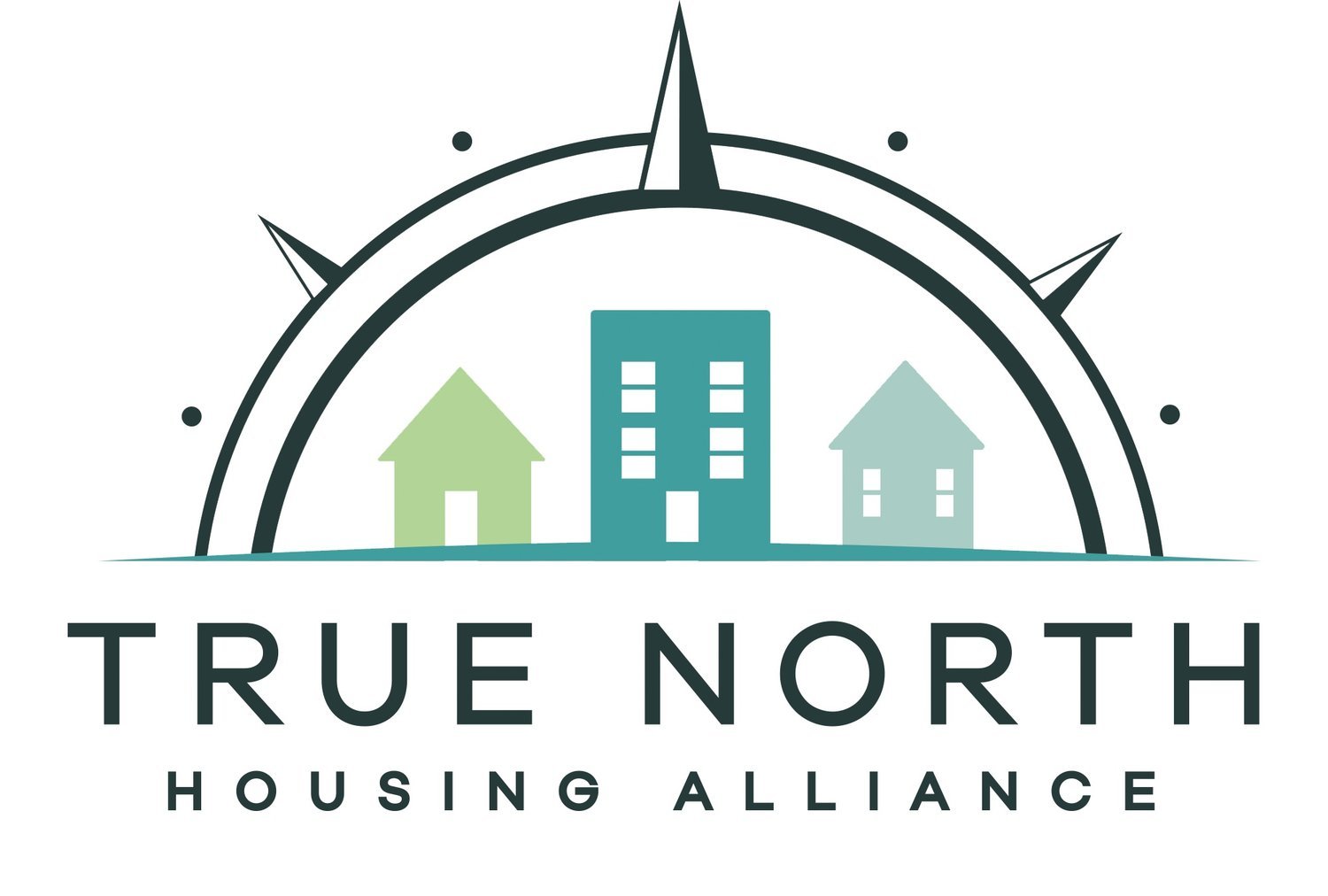Mental Health Matters
About this story: Many of the people we serve experience homelessness and mental illness and have found their path to health, happiness and housing with the support of True North Housing Alliance and our program partners. For Mental Health Matters Month this May, we are highlighting our partnership with Butte County Behavioral Health and our shared efforts to provide mental health care and support to those we serve.
Homeless Peer Partner Program
When someone is struggling, receiving support from others who know what it’s like to be in their shoes can make all the difference.
At the Torres Community Shelter, True North Housing Alliance’s emergency shelter for people experiencing homelessness, many employees have experienced mental illness and/or homelessness. This allows them to better connect and build relationships with our guests, decrease stigma around mental illness and guide guests toward self-sufficiency.
These employees are part of the Homeless Peer Partner Program, made possible through a partnership with Butte County Behavioral Health and funding from the Mental Health Services Act. True North reports that our peers logged over 7,000 hours of service during the first half of 2020.
Our peer partners not only listen, relate to shelter guests and provide an empathetic ear, but they also connect them to our partners, including Butte County Department of Employment and Social Services eligibility workers, Butte County Behavioral Health, and other community health care providers.
Peer Partners also help those we serve get connected to vital resources in housing, vocational training and employment, mental and physical health education, and life and academic skills training.
Catt, a Case Manager and Peer Partner at the Torres Shelter, has had opportunities to share her story while supporting our guests, and has noticed that it helps them feel more comfortable opening up to her about what they are going through.
“I’m able to relate to them and they feel safe,” she said. “They know if I sobered up and got my life together, then they can do it.”
She knows from personal experience how important it is to have positive, supportive people around to help with recovery.
“A lot of people need somebody to lean on to get sober, and we’re there to guide them in a healthy way,” she said. “We’re here for them to make sure they’re in a safe, structured environment and being taken care of.”
Nadeem, a guest at the Torres Shelter, said that having staff members like Catt to provide support has made a huge difference when it comes to coping with his feelings of depression and anxiety.
“Without me even having to ask, she’s brought me to the side and asked me what’s going on, how I’m doing,” he said. “It’s been really nice actually having someone to talk to that knows what I’m going through and can help me out in return.”
Crisis Triage Connect Team
Kirk Zeller, Butte County Behavioral Health Supervisor for the Crisis Triage Connect Team, said people experiencing mental illness and homelessness often feel very overwhelmed when leaving a psychiatric hospital.
That’s when the Crisis Triage Connect Team provides support and facilitates a very important connection to True North Housing Alliance and our emergency shelter, the Torres Community Shelter.
With this program, which is funded through the Mental Health Services Act, guests not only receive case management from our staff at True North Housing Alliance, but from the Crisis Triage Connect Team, as well. Our case managers work together to ensure individuals experiencing homelessness and mental illness receive everything they need to move forward successfully, including mental and physical health care, housing and employment services.
“The staff at True North is really collaborative, and it just makes a big difference,” Zeller said. “We’re working together to provide services and support to these folks. That really helps prevent people from falling through the cracks.”
True North Case Manager Supervisor Brittiney N. added that the Crisis Triage Connect Team case managers are excellent partners, and this collaborative team effort to provide wraparound services to people in crisis is what makes the program so successful.
“A lot of people experiencing homelessness need that extra attention and advocacy to make sure they stay stable and on medication and get therapy—and this partnership is able to provide that for them,” she said.
For our guest David, the Crisis Triage Connect Team provided not only physical support—driving him to and from important appointments—but also emotional support, he said.
“They were always willing to listen," David said. "Everybody I met was caring and compassionate and kind and willing to help."
That assistance during his journey was "invaluable," he said. David is now happily housed. You can read more about him here.
PATH: Projects for Assistance in Transition from Homelessness
Individuals experiencing homelessness can be difficult to reach. There’s stigma when it comes to seeking and receiving mental health services, and many are wary of reaching out to government agencies.
Under the PATH: Projects for Assistance in Transition from Homelessness program, Butte County Behavioral Health and True North Housing Alliance work together to connect the guests we serve to mental health services and resources. A Behavioral Health clinician works with our staff at the Torres Community Shelter, making connections to extend support to guests in need of mental health care.
Chico Adult Outpatient Clinic Program Manager Alex Bruun says that this partnership has been valuable, and individuals experiencing homelessness have entered medical and therapeutic treatment as a result.
“Our clinician can meet people where they’re at, literally and figuratively, to see what their needs are—is there anything we can help them with, and ultimately, can we engage them in mental health services?” Bruun said. “It takes away a lot of barriers.”


